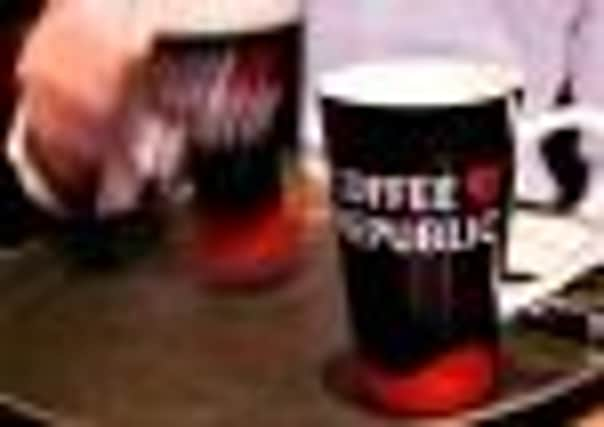Coffee Republic court case: Argument settled on whether a cafe is a shop or restaurant


Officials setting an annual rateable value for the Coffee Republic franchise in Glasgow’s Silverburn shopping centre believed that it should be classed as a shop and given a £159,000 figure.
However, the franchise holder, Monti Marino (Glasgow), contended that it was a restaurant and should have a value of £87,000.
Advertisement
Hide AdAdvertisement
Hide AdThree senior appeal judges have now settled the dispute by declaring that Unit 51 is very much a restaurant.
The Lands Valuation Appeal Court in Edinburgh heard that Silverburn’s Coffee Republic had a seating and table area and served delicatessen food and coffee. More than half its turnover came from food and, by contrast with many other coffee shops, food was made to order and there was table service. It was similar to other food units at Silverburn, such as Frankie and Benny’s, La Tasca and Prezzo, but did not come into their rating category of licensed premises.
Costa Coffee and O’Brien’s were also different, being treated as mall kiosks.
Glasgow’s assessor put Coffee Republic in the “shops” class, with a rate of £1,250 per sq metre, as applied to all standard-size shops in the main mall.
A valuer for Monti Marino maintained it should be £500 psm because food outlets ought not to be equated with shops, and restaurants at Silverburn had been valued at a lower rate.
The valuation appeal committee ruled in favour of Monti Marino, and the assessor took the case to the appeal court, headed by Lord Gill, the Lord President, who said: “Counsel for the assessor submits that, on the evidence led, no reasonable committee would have reached the view that the subjects should be valued as a cafe or restaurant. He says that, however one looks at Coffee Republic, it is not a restaurant. It could certainly be characterised as a cafe in normal parlance, but since no such discrete category is recognised in valuation for rating, the assessor cannot adopt that categorisation.
“I cannot see what is unreasonable in the committee’s having reached the view that the subjects were a cafe or restaurant. At least five considerations pointed to that conclusion – tables and chairs for diners, the extent of food-based spending, the fact that only a minority of the trade is takeaway, the fact food is prepared on the premises, and the availability of customer toilets.